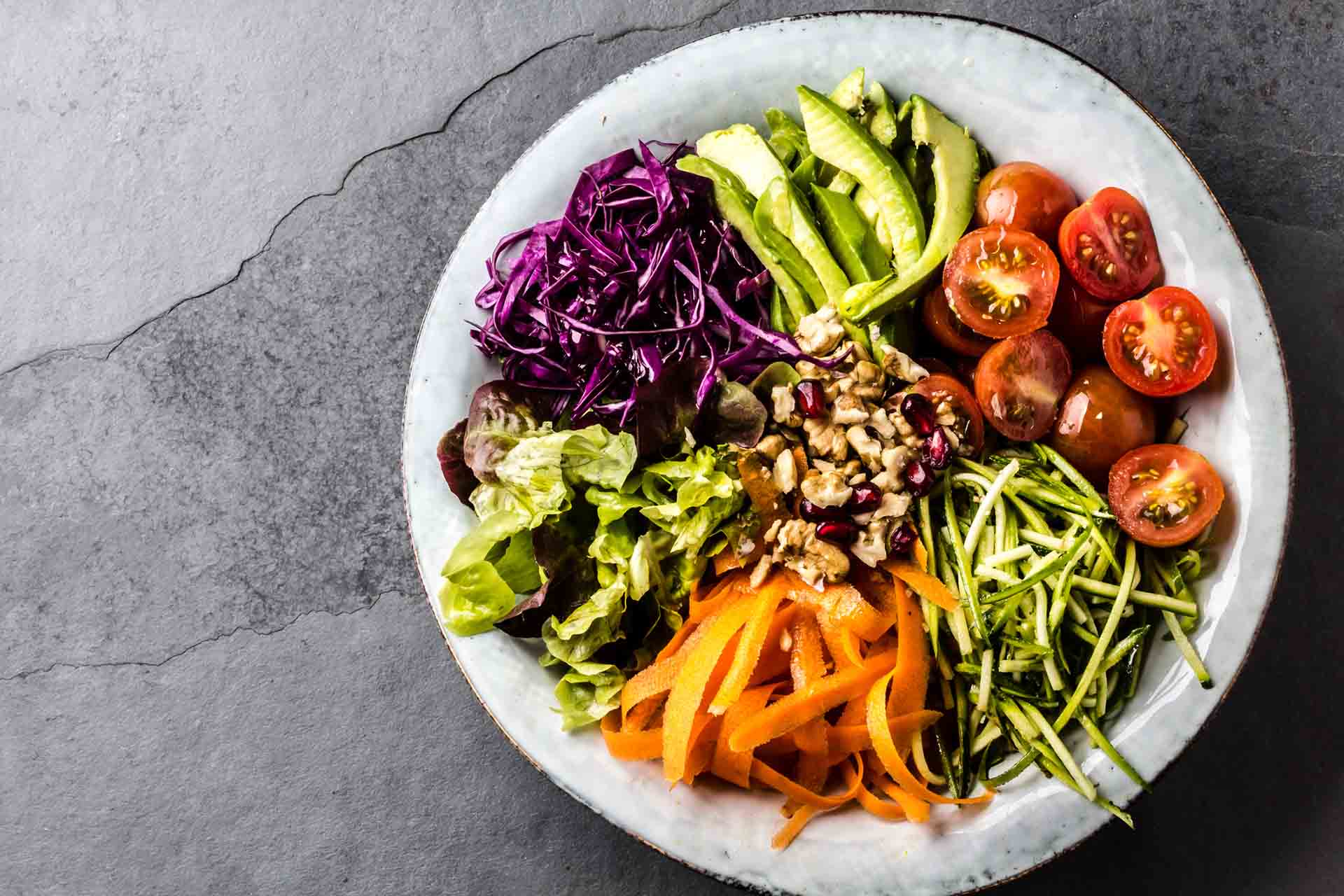The Truth About Plant Based Beef: Taste Test Results & Nutritional Facts
The Truth About Plant Based Beef: Taste Test Results & Nutritional Facts
Blog Article
All About Healthy And Balanced Food: Advantages of Embracing Plant Based Options
The discussion bordering plant-based diets has gotten significant focus in the last few years. Lots of individuals are exploring the prospective wellness benefits, dietary advantages, and environmental effects connected with these dietary selections. As individuals become a lot more familiar with their food's impact on health and sustainability, inquiries emerge regarding the functionalities of embracing such a lifestyle. What specific changes can one anticipate, and just how might these selections reshape not only personal health and wellness yet additionally the planet's future?
Recognizing Plant-Based Diet Regimens
Although lots of people link plant-based diet regimens generally with vegetarianism or veganism, these diet regimens can include a vast array of consuming patterns that focus on entire, minimally processed plant foods. Such diet plans often consist of fruits, vegetables, whole grains, seeds, vegetables, and nuts, while restricting or eliminating animal items. This versatility permits people to tailor their dietary selections according to nutritional demands and individual choices. Some may take on a mainly plant-based diet while still occasionally consuming meat or milk, typically described as a flexitarian method. The focus remains on incorporating even more plant foods, which can lead to a varied array of flavors and dishes. Recognizing these numerous analyses of plant-based eating is crucial for valuing its availability and charm in modern food society.
Health And Wellness Benefits of Plant-Based Foods
The health advantages of plant-based foods are considerable, supplying a nutrient thickness benefit that supports general well-being. Research study shows that these foods can improve heart health and wellness and play an important duty in reliable weight administration. By including extra plant-based options, individuals might boost their nutritional selections and advertise lasting health and wellness.
Nutrient Thickness Benefit
Nutrient density plays a vital duty in the wellness advantages of plant-based foods, making them a compelling option for those looking for a balanced diet plan. Plant-based foods, such as fruits, vegetables, legumes, nuts, and entire grains, are frequently abundant in essential vitamins, minerals, and antioxidants while being reduced in calories. This high nutrient thickness allows individuals to consume fewer calories while still fulfilling their nutritional requirements. In addition, these foods are loaded with nutritional fiber, advertising digestive system health and helping in weight management. By incorporating nutrient-dense plant-based choices, customers can boost their overall health, sustain their immune systems, and reduce the risk of persistent illness. Ultimately, the nutrient density of plant-based foods highlights their value in a health-conscious lifestyle.
Heart Health Improvement

Weight Monitoring Support
In addition to advertising heart wellness, a plant-based diet plan can significantly assist in weight management. This nutritional approach emphasizes whole foods such as fruits, veggies, legumes, nuts, and entire grains, which are normally reduced in calories and higher in fiber compared to animal-based products. The high fiber web content helps increase satiation, reducing overall calorie intake. Plant-based diets are commonly abundant in essential nutrients while reduced in harmful fats, making it simpler to keep a healthy weight. Research study suggests that people that embrace a plant-based lifestyle often tend to have reduced body mass indexes (BMIs) and experience even more effective weight loss compared to those who consume meat-heavy diet regimens. Subsequently, accepting plant-based alternatives is a critical option for effective weight administration
Nutritional Value of Plant-Based Active Ingredients
Plant-based components are rich in essential nutrients, providing a diverse range of vitamins, minerals, and antioxidants that add to total wellness. A contrast of protein resources reveals that while animal items are frequently deemed premium, several plant-based alternatives give appropriate protein and other helpful compounds. Recognizing the nutritional worth of these active ingredients can assist individuals make notified dietary choices.
Crucial Nutrients in Plants
Nutrient-rich active ingredients found in plants supply a varied selection of important vitamins and minerals that contribute greatly to general wellness. These ingredients are rich in vitamins A, C, and K, which support immune function, vision, and blood clot, respectively. On top of that, plants give vital minerals such as magnesium, calcium, and potassium, critical for heart wellness, muscle mass feature, and bone toughness. The existence of fiber in plant-based foods help food digestion and promotes a healthy intestine microbiome. Anti-oxidants, located perfectly in vegetables and fruits, help combat oxidative anxiety and decrease swelling. Moreover, many plant foods are low in calories yet high in nutrients, making them an outstanding selection for those seeking to keep a healthy and balanced weight while making sure excellent nutrient consumption.
Comparing Healthy Protein Sources
Protein sources vary considerably in their dietary profiles, with plant-based components providing unique benefits. Unlike pet healthy proteins, which often have saturated fats and cholesterol, plant proteins tend to be reduced in these undesirable elements. Legumes, nuts, seeds, and entire grains are rich in crucial amino acids, fiber, vitamins, and minerals. Lentils supply high protein content along with substantial iron and folate, while quinoa is a total healthy protein, providing all 9 important amino acids. In addition, plant-based healthy proteins are often accompanied by antioxidants and phytochemicals that support overall health. The shift to plant-based healthy protein sources not only enhances nutritional intake however likewise aligns with lasting dietary practices, lowering environmental effect and advertising lasting health advantages.
Environmental Impact of Plant-Based Consuming
As awareness of environment change grows, numerous individuals are discovering lasting dietary options that can significantly decrease their environmental impact. Plant-based consuming has become a considerable contributor to reducing greenhouse gas emissions, which are largely related to livestock manufacturing. The growing of fruits, vegetables, grains, and veggies generally requires less sources, such as water and land, compared to animal farming. Additionally, plant-based diet regimens can lead to decreased logging, as much less land is required for grazing livestock or expanding animal feed. By changing towards plant-based alternatives, consumers can sustain biodiversity and promote healthier communities. Overall, embracing plant-based eating not just advantages individual wellness yet likewise represents an essential step toward ecological sustainability and conservation efforts.
Conquering Common Misconceptions
While many people identify the benefits of a plant-based diet regimen, several mistaken beliefs commonly hinder them from totally welcoming this way of life. A common belief is that plant-based diet plans lack sufficient protein; nonetheless, many plant sources, such as beans, nuts, and tofu, offer adequate protein. Additionally, some assume that this diet plan is expensive, when as a matter of fact, staples like beans, rice, and seasonal vegetables can be quite budget friendly. An additional false impression is that plant-based consuming is extremely limiting, whereas it really uses a varied range of foods and flavors. Many fret that a plant-based diet regimen may lead to deficiencies, yet with proper preparation, individuals can get all needed nutrients, consisting of minerals and vitamins, while appreciating a vast variety of tasty dishes. Large Tips for Transitioning to a Plant-Based Way of living
Making the change to a plant-based way of living can be an improving experience, though it often requires some assistance to navigate the preliminary adjustments. First, individuals are motivated to begin gradually, integrating more fruits, veggies, beans, and entire grains into their meals while lowering meat and dairy products consumption. Meal preparation is essential; preparing a regular menu can aid ease the adjustment and avoid final unhealthy selections. Checking out brand-new recipes and cooking techniques can likewise keep and improve the experience enjoyment regarding plant-based eating. Furthermore, signing up with support system or neighborhoods can offer inspiration and share useful tips. Staying informed about nourishment warranties well balanced meals, stopping shortages while cultivating a healthy, enjoyable plant-based way of life.

Delicious Plant-Based Meal Concepts
Discovering delicious plant-based dish ideas can inspire individuals to accept a more nutritious diet plan. One prominent choice is a hearty quinoa salad, featuring cherry tomatoes, cucumber, and a zesty lemon-tahini clothing. An additional favorite is a mouthwatering lentil stew, packed with carrots, celery, and great smelling herbs, best for a soothing supper. For morning meal, over night oats made with almond milk, chia seeds, and topped with fresh berries offer a nourishing beginning to the day. Additionally, a dynamic vegetable stir-fry with tofu and a variety of vivid veggies can be a fast yet pleasing meal. Ultimately, luscious avocado toast on whole-grain bread, sprinkled with flavors and seeds, provides a straightforward yet delicious snack. These meals display the selection and richness of plant-based consuming.

Often Asked Concerns
Can a Plant-Based Diet Regimen Provide Sufficient Healthy Protein?
The inquiry of whether a plant-based diet regimen can provide sufficient protein is usual. Numerous sources, consisting of vegetables, nuts, seeds, and whole grains, can fulfill protein requires efficiently, supporting a nourishing and balanced diet for people.
Are Plant-Based Diet Plans Ideal for Children?
The suitability of plant-based diet plans for youngsters depends upon careful planning. Sufficient nutrients must be ensured, including proteins, minerals, and vitamins. With correct advice, such diet plans can sustain healthy and balanced growth and development in youngsters.
Just how Do I Eat Out on a Plant-Based Diet?
Eating out on a plant-based diet plan involves seeking dining establishments with diverse menus, requesting alterations, and discovering vegan-friendly choices. Planning in advance and communicating dietary preferences can enhance the eating experience while preserving nutritional choices.
What Are Typical Irritants in Plant-Based Foods?
Typical allergens in plant-based foods consist of soy, gluten, nuts, and seeds - Sugar Free Sauces. People following a plant-based diet must recognize these irritants and read labels meticulously to stay clear of unfavorable reactions and ensure safe intake
Can Plant-Based Diets Aid With Weight Loss?
Research study indicates that embracing a plant-based diet might help with weight reduction because of its usually lower calorie thickness and greater fiber content. This combination can boost satiety, aiding people handle their caloric consumption successfully. Numerous people associate plant-based diet plans primarily with vegetarianism or veganism, these diets can encompass a vast array of eating patterns that focus on entire, minimally refined plant foods. BBQ Sauces Nutrient thickness plays a crucial duty in the wellness benefits of plant-based foods, making them a compelling choice for those seeking a balanced diet. Plant-based diets have actually been revealed to substantially enhance heart wellness, as they usually include aspects that sustain cardio feature. In addition to advertising heart health and wellness, a plant-based diet plan can significantly aid in weight administration. A common idea is that plant-based diet plans lack adequate protein; however, numerous plant sources, such as vegetables, nuts, and tofu, provide adequate protein.
Report this page